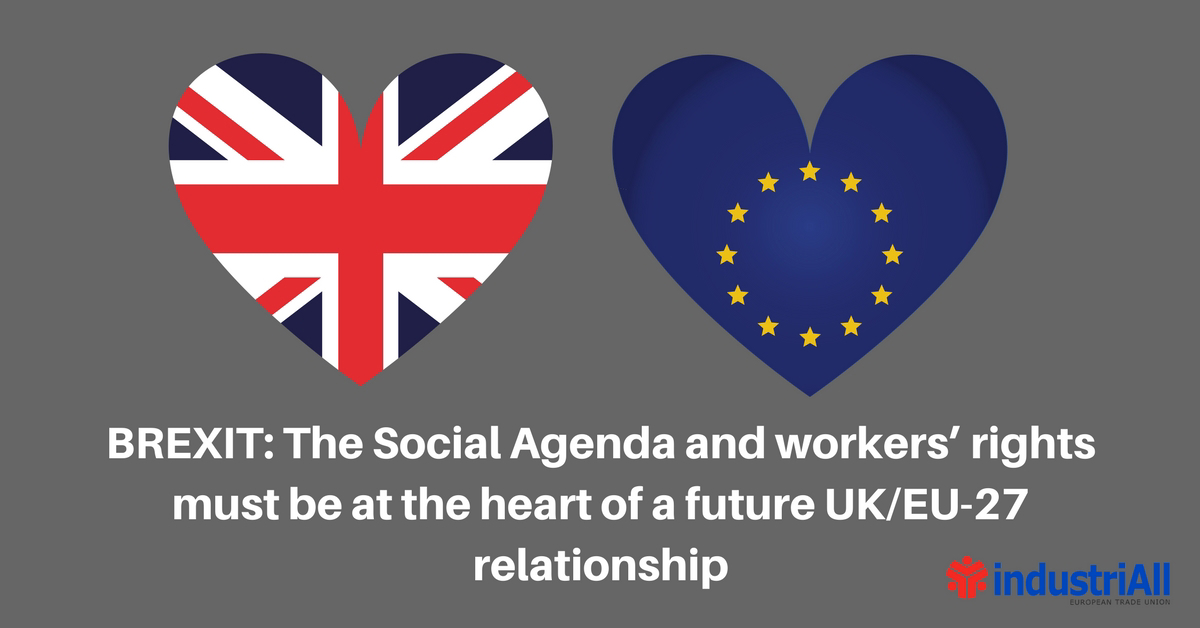Luc Triangle, General Secretary of industriAll Europe, said:
“European integrated supply chains, internal trade within the Single Market, the Customs Union, mutual recognition, rules of origin, tariff and barrier free access and freedom of movement are all crucial for European manufacturing. These EU measures are invaluable for our industries in the face of fierce global competition.
“We already know that non-EU membership will lead to extra administration and tariffs for the UK, and that both industries in UK and the EU-27 will suffer. However, we cannot allow the UK Government to try to compensate for this by lowering social standards and workers’ rights in order to increase competition.
“Now that the guidelines for a future UK/EU-27 relationship have been agreed, the devil really will be in the detail. We remain very concerned about a future Free Trade Agreement (FTA), as we do not believe that an FTA is the best deal for workers. Previous FTAs with other countries have not gone nearly far enough regarding social issues and we need to remember that the UK is not a “normal” third country. We must ensure a global playing field to protect workers and prevent a race to the bottom.
“IndustriAll Europe demands guarantees of high social standards and a level-playing field in any potential FTA between the UK/EU-27. We demand full respect for the EU social acquis and the inclusion of a non-regression clause to avoid social dumping. All workers’ rights which are underpinned or supported by EU legislation must be retained and upheld, this includes the Working Time Directive, health and safety legislation and the rights of fixed term and agency workers.
“The UK cannot simply lower employment standards in order to create competitiveness. Above all else we must avoid the social agenda becoming an issue for competition. We do not want our workers to be played off each other.
“The biggest issue facing European industry and its workers are the UK Government’s redlines. We continue to call for barrier- and tariff-free access to the Customs Union and for the UK Government to support this. Any changes that affect European (including UK) competitiveness will only benefit global competitors and the EU must continue to work for the best deal for all workers.”
